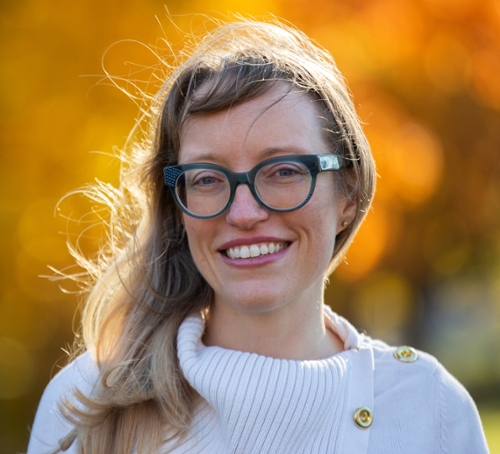
I was attracted to the CAFE Fellows program by the opportunity to be part of a team of people shaping University initiatives that provide new opportunities to faculty and improve faculty experience and productivity. I’m excited to help develop the grant writing course that Dr. Alexis Petri is piloting this year and in which I’m also a participant. Many UMKC faculty members are already being awarded large and small grants – but with this short course, many more could develop new proposals, increase their success rates, and expand the role that grants play in their research and teaching. Another initiative I’m eager to develop will provide training and resources to help faculty across disciplines communicate their research findings to a broader audience, including policy makers, practitioners, students and the general public. While faculty primarily share research findings through journal articles and academic press books, academic blogs, podcasts and media interviews are increasingly available and significant in their potential to increase the awareness and impact of research. This new initiative will help faculty to take full advantage of these outlets.
I have two primary goals for this year. The first is to further develop the grant writing course to ensure that it provides maximum impact for the time and effort faculty invest. Every component of the course should be designed to deliver a clear return on investment, and the course as a whole will guide the faculty member through the complete process of identifying a funding opportunity, applying for funding (including revising for future rounds in the event of rejection), and managing grant funds when they are awarded.
My second goal is the development of media engagement resources. This will begin with the publication of new resources on the CAFE website that provides an overview of how publishing academic blogs can further faculty members’ careers and research agendas as well as a list of edited academic blogs that accept contributions for review. Ultimately, over the course of this year, I will also develop a short course microcredential in media engagement. This course will provide faculty members a forum in which to develop and workshop blog posts promoting their research as well as an opportunity to practice other types of media engagement, including interviews relating to their research. I’m very excited about the potential for this training to increase public awareness and recognition of the research that UMKC faculty do every day.
As a faculty member, I think training in grant writing is critical for our faculty. We all know how limited internal funding is, but many of us need those dollars to develop our research and ultimately to earn tenure or promotion. I have learned a lot through the short course in grant writing, and I’m excited to be involved in developing that course to provide the greatest possible return on the investment of time and effort that faculty members make.
My interest in increasing faculty visibility via media engagement and academic blogs is driven in large part by the impact that these have had on my own career. While this type of writing is not [yet] part of official annual evaluations for most of us, I have experienced many benefits from them. For me, publications in higher profile academic blogs like the Washington Post Monkey Cage and influential niche outlets like Political Violence at a Glance have resulted in new co-authorships and greater reach for my related academic publications. They’ve also allowed me to test out new co-authoring relationships on shorter projects. I’m excited to share the skills I’ve picked up through these experiences as well as through training in the International Policy Summer Institute program.